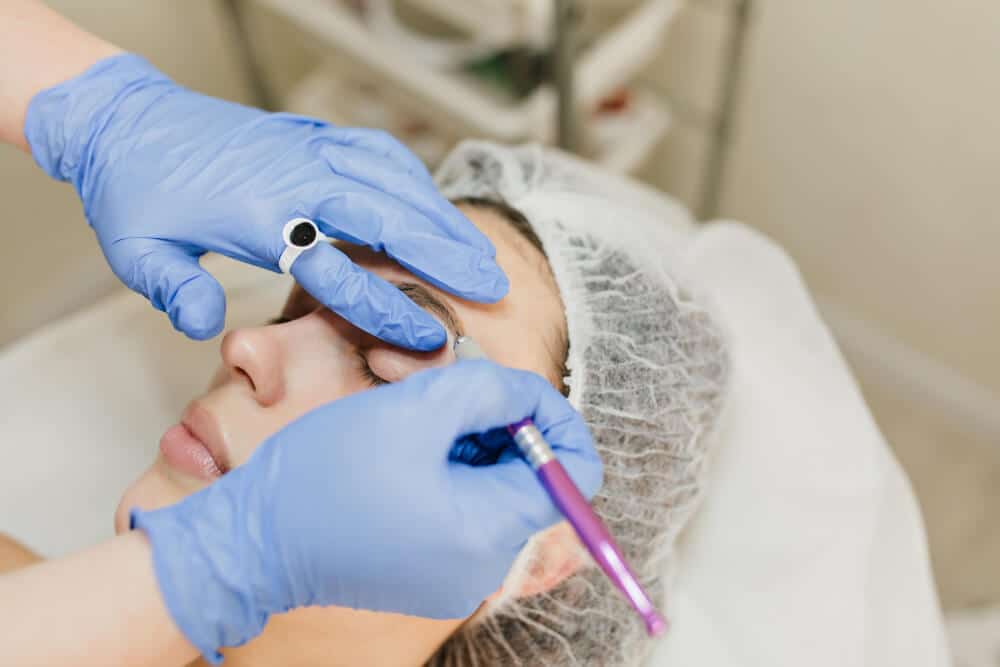Your skin, the body’s largest organ, shapes your self-assurance and overall wellness. Attaining immaculate skin goes beyond mere aesthetics; it’s intrinsically tied to feeling self-assured and at ease in your skin. Dermatology has witnessed remarkable advancements in its quest to aid individuals in achieving vibrant skin and in the pink of health. In the ensuing blog, we shall delve into the profound influence of dermatology and its potential to elevate your self-assurance and inner certainty.
Understanding dermatology
Dermatology is a medical discipline that focuses on meticulously diagnosing and remediation of skin, hair, and nail conditions. Those who practice this medical art have undergone rigorous specialized training within this realm, thus earning the distinction of being authorities in addressing an array of matters related to the integumentary system.
Common skin issues
Diverse skin concerns manifest, from conditions such as acne and eczema to psoriasis and the serious specter of skin cancer. These maladies wield substantial influence not solely upon your physical presentation but also upon the delicate fabric of your mental and emotional equilibrium. Within this purview, dermatological specialists stand ready to provide their expertise, guiding you toward resolving these challenges and restoring your self-assurance.
The power of personalized care
Below are some reasons why personalized care can help you way more than you think:
1.Tailored treatment plans
One of the pillars of strength within dermatology is its capacity to furnish tailored care. Within this paradigm, dermatologists meticulously evaluate the distinct characteristics of your skin, including its type, specific conditions, and any individual apprehensions you may possess.
Subsequently, they craft meticulously customized treatment strategies, ensuring the delivery of interventions that are effective and impeccably suited to address your particular requirements.
2.Acne management
Acne, a prevalent skin issue, can impact individuals across the age spectrum. Dermatological practitioners can recommend topical creams and oral medications or employ advanced methodologies such as chemical peels to manage acne. Their adeptness contributes to scar mitigation and the reinstatement of a complexion devoid of blemishes.
Innovative treatments and procedures
Dermatology has been evolving with new technological advancements. Some of them are:
1.Cutting-edge technology
Advancements in dermatology have led to the development of cutting-edge treatments and procedures. These innovations provide faster and more effective solutions for various skin concerns.
2.Laser therapy
Laser therapy is a versatile tool in dermatology. It can be used for hair removal, scar reduction, and tattoo removal. Laser treatments are precise and targeted, resulting in minimal downtime and impressive results.
Skin cancer detection and prevention
It’s more than just beauty, it’s your skin. It’s a protective layer that must be taken care of medically. Dermatology helps in skin diseases like skin cancer detection and prevention in the following ways:
1.Skin cancer awareness
The gravity of skin cancer as a health concern cannot be overstated, with early identification as an indispensable prerequisite for effective intervention. Dermatological practitioners undergo specialized training, equipping them with the expertise to discern the telltale indicators of skin cancer. They also conduct periodic skin examinations, identifying potential issues in their nascent stages.
2.Sun protection
UV rays are one of the major contributors to skin cancer, and that’s why wearing sunscreen is so necessary. Dermatologists underscore the critical role of sun protection strategies, including diligently using sunscreen, donning protective clothing, and conscientiously minimizing undue sun exposure. These uncomplicated yet potent precautions potentially diminish the likelihood of skin cancer occurrence substantially.
Boosting self-esteem and confidence
Who doesn’t love flawless skin? Everyone. Here’s how radiant skin can help you:
1.Addressing emotional well-being
Challenges related to the skin can exact an emotional toll, impacting self-esteem and overall emotional equilibrium. In the realm of dermatology, the focus extends beyond physical treatment; it encompasses the restoration of confidence and mental well-being. Experiencing a sense of contentment in one’s skin can exert a profound and transformative influence on one’s overall quality of life.
2.Support and guidance
Dermatologists extend their services beyond medical treatment; they serve as pillars of support and guidance throughout your skincare journey. Their comprehensive understanding of the emotional dimensions associated with skin conditions equips them to address your apprehensions effectively, ultimately bolstering your self-confidence.
The bottom line
In summary, dermatology emerges as a potent realm of the medical field capable of effecting profound changes in your skin’s condition and bolstering your self-assurance. Do not allow skin-related issues to hinder your pursuit of feeling your absolute best. Seeking consultation with a skin specialist marks the initial step towards embarking on a path to skin health and radiance. Remember that no obstacle is too formidable to surmount when you exude confidence in your skin.



